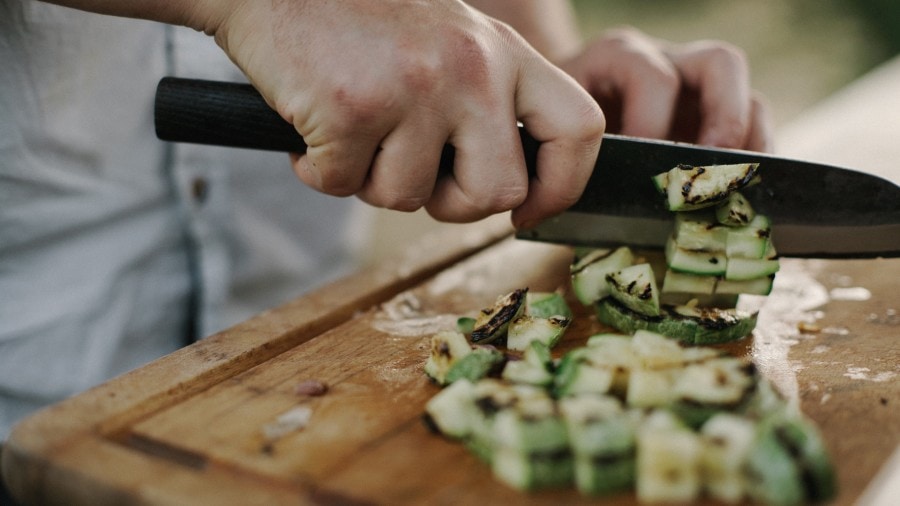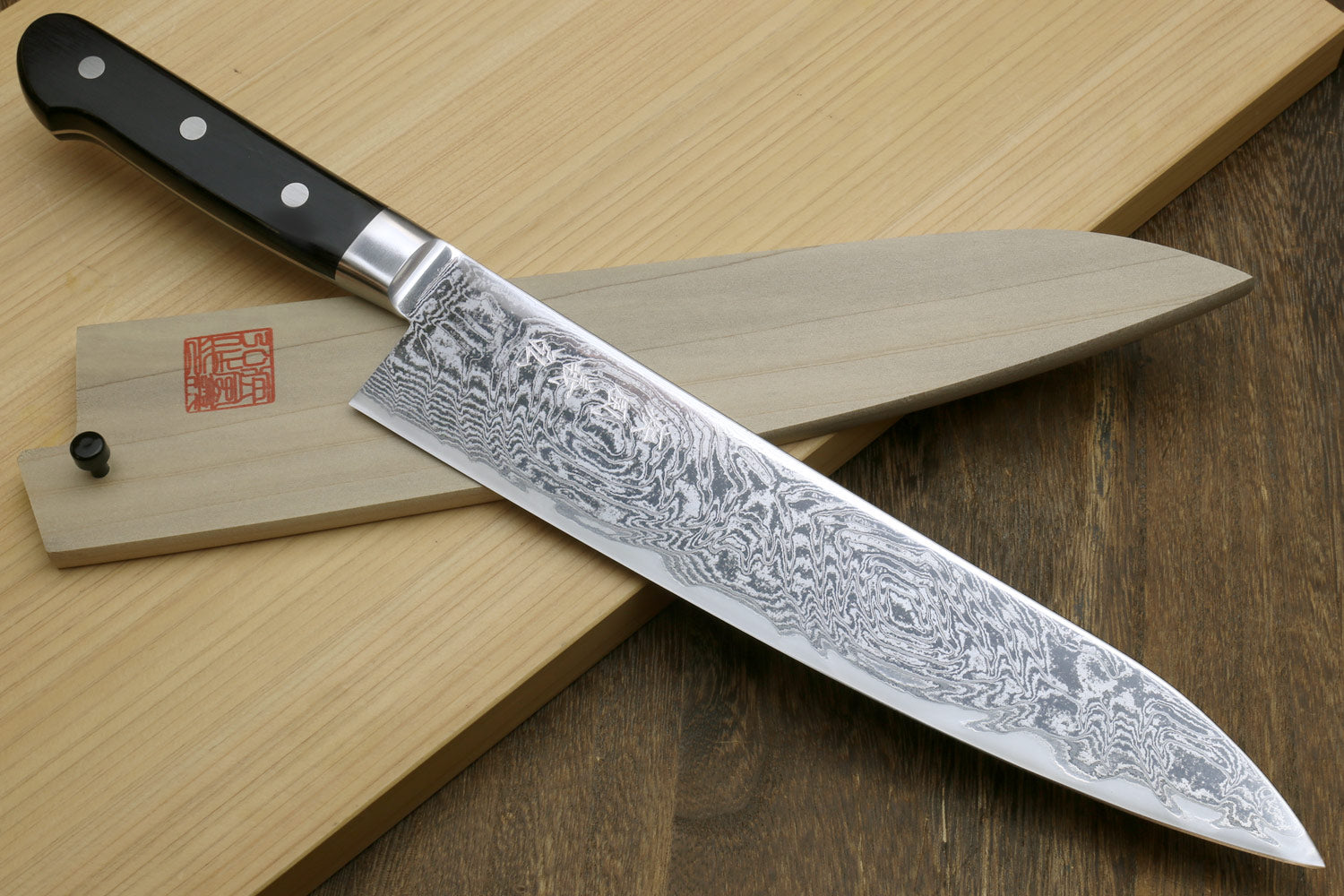In the world of culinary arts, the tools a chef chooses can profoundly affect their work. Among these tools, the Asian Damascus knife stands out, a paragon of precision and artistry in knife crafting. Revered by kitchen professionals and enthusiasts alike, these knives are exceptional not only for their functionality but for the rich heritage intertwined with their production.
The tradition of Asian Damascus knife craftsmanship originates from ancient techniques that have been passed down through generations. Modern chefs appreciate these knives for their blend of beauty, balance, and sharpness, a true testament to skilled artisanship.

The Origins of Damascus Steel
Understanding the allure of the Asian Damascus knife requires a journey back in time. The legend of Damascus steel originates in the Near East, renowned for its unique patterns resembling flowing water or 'wootz' steel. This intricate patterning results from a meticulous process of folding and forging that augments both the blade's aesthetics and its physical properties.
This ancient method was adapted across Asia, where artisans introduced their own cultural nuances to the craftsmanship. The result is an exquisite combination of East Asian design and legendary Middle Eastern metallurgy, recognized today as a hallmark of quality and elegance. For more insights into the history of Damascus steel, you can visit the Chris Ploof Designs website.
The Art of Crafting an Asian Damascus Knife
Creating an Asian Damascus knife is a labor-intensive process that demands a skilled hand and a deep understanding of materials. The process begins with the selection of high-carbon steel, which is then repeatedly heated and folded. This folding process not only creates the distinctive patterned layers but also strengthens the blade by aligning the steel's molecular structure.
One of the most striking features of a Damascus knife is its aesthetic appeal. The mesmerizing, wave-like patterns on the blade are not simply decorative; they are a byproduct of the craftsmanship process. Each knife tells a story, much like a fingerprint of its maker, embedding stories of tradition in every layer.
To further explore the art of traditional Damascus knife making, the article on traditional Damascus knives delves deeper into this intricate process.
The Value of Asian Damascus Knives for Kitchen Professionals
For kitchen professionals, choosing an Asian Damascus knife reflects a commitment to quality and efficiency. These knives are known for their exceptional sharpness, edge retention, and resilience, making them indispensable in a high-paced culinary setting.
The balance and weight of these knives enhance their precision, allowing chefs to make clean, precise cuts that are essential in culinary presentation and cooking techniques. Whether crafting delicate sushi rolls or slicing through tough vegetable skins, the knife's performance remains unparalleled.
For a closer look at how these knives stack against others, check out this discussion on handmade Damascus knives from Pakistan.
Caring for Your Damascus Knife
While Asian Damascus knives are a joy to use, they require proper care to maintain their edge and appearance. Regular honing and careful cleaning are essential. It's important to avoid the dishwasher, as this can strip the blade of its natural oils and compromise its structural integrity.
Storing the knife properly is also crucial. Protective sheaths or magnetic strips can keep the blade sharp and prevent accidents. Regular oiling of the blade helps to prevent rust, preserving both the appearance and functionality of the knife.
For further reading on preserving your knives, the blog on German Damascus chef knives offers some useful tips.

FAQ Section
What makes Asian Damascus knives different from other knives?
Asian Damascus knives are known for their distinctive patterns and superior strength, resulting from the ancient technique of folding and forging steel. These knives are valued for their sharpness, edge retention, and intricate craftsmanship.
Are Damascus knives worth the investment?
Yes, for kitchen professionals, investing in a Damascus knife offers long-term benefits such as superior performance, durability, and an exceptional cutting experience.
Can Damascus knives be customized?
Many artisans offer custom designs catering to individual preferences in balance, handle, and blade length, making each knife a unique piece of art.
This article contains affiliate links. We may earn a commission at no extra cost to you.


























